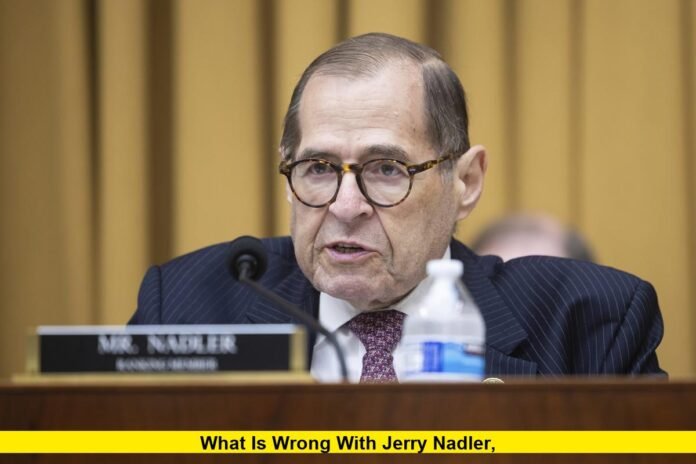Many people have recently been asking what is wrong with Jerry Nadler, but the answer has nothing to do with his health. The longtime Democratic Congressman announced that he will not seek reelection in 2026, closing out a political career that has spanned more than three decades. At 78, Nadler explained that his decision comes from a desire to make room for a younger generation of leaders.
A Career of Influence
Jerry Nadler has been a fixture in New York politics since first winning a seat in Congress in 1992. Representing Manhattan’s district, he became one of the most recognizable Democrats on Capitol Hill. His leadership on the House Judiciary Committee, especially during the impeachments of former President Donald Trump, cemented his national reputation.
Over the years, Nadler earned a reputation as a steady, principle-driven lawmaker. He consistently focused on issues like civil rights, justice reform, and government oversight. His colleagues described him as someone who combined persistence with a strong belief in democratic values.
Why Step Down Now?
Speculation about what might be wrong with Jerry Nadler often revolves around his age or past health scares. However, Nadler has been clear: his choice is not based on illness. Instead, he sees this as a moment when the Democratic Party needs to embrace generational change.
He pointed to the challenges the party faces after recent election struggles, arguing that younger leaders may connect more effectively with voters. His retirement is intended to open the door for that renewal.
The Search for a Successor
With Nadler leaving, attention has quickly turned to who will fill his seat. Manhattan’s 12th Congressional District is considered safely Democratic, but the race is expected to be competitive within the party.
Several possible contenders are already being discussed, including city council members, state legislators, and community leaders. One younger challenger has already announced a campaign, signaling that fresh energy is entering the field.
Here’s a quick breakdown of what’s next:
- District: Manhattan’s 12th, a solidly Democratic area
- Potential Candidates: Local lawmakers, younger progressive leaders, former aides
- Primary Outlook: Likely crowded, with more than a dozen candidates possible
- Nadler’s Role: He has not endorsed anyone but expressed support for passing leadership to the next generation
Colleagues Respond
Nadler’s announcement drew warm tributes from fellow Democrats. Party leaders praised his decades of service, highlighting his commitment to civil rights and his ability to navigate some of the most challenging moments in modern politics. Even his critics acknowledged the impact of his long career.
For Nadler, the retirement decision was not easy. He acknowledged the weight of leaving behind an institution he has been part of for more than thirty years. Still, he emphasized that leadership transitions are essential for a healthy democracy.
Legacy of Service
Throughout his time in Congress, Nadler has been known for his consistency. He often avoided flashy headlines, focusing instead on substantive issues. His legacy includes shaping debates on justice, defending democratic institutions, and giving voice to causes that might otherwise have been overlooked.
When asked directly about questions of health, Nadler made it clear that nothing is “wrong” in that regard. Instead, his message is that stepping aside now is about timing, opportunity, and ensuring that the Democratic Party can move forward with vigor.
Read also-Jerry Nadler Health: Latest Updates on the Congressman’s Status
Final Thoughts
So, if you are wondering what is wrong with Jerry Nadler, the answer is simple: nothing at all. His retirement is a personal and political decision, not a result of illness. With Nadler’s exit, the stage is set for a lively and competitive primary in New York, one that could shape Democratic politics in the years to come.
What do you think about Nadler’s decision to retire and the future of his seat in Manhattan? Share your views in the comments and join the discussion as this political transition unfolds.
